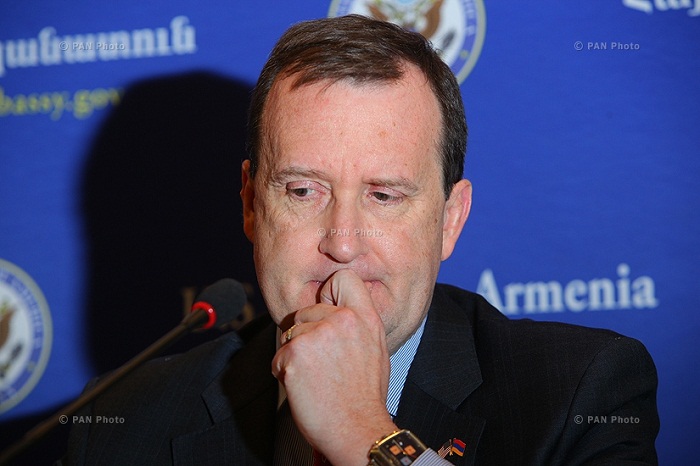“I hear about that toll from potential U.S. business investors and from average Armenians as I travel the country,” he said, speaking at the American Chamber of Commerce in Armenia. “The whole economy – indeed the whole country – suffers.”
Mills added that the dangers of corruption might prevent foreign businesses from investing their money in Armenia. “They vote with their investment dollars; if they see a country suffering the ills of corruption they either don’t invest at all, or may decide to pull their money out. Among Armenians, the burden of corruption falls on the most vulnerable, the small business owners struggling to start and maintain their operations.
“But corruption affects more than just the economy. Corruption undermines democracy and rule of law. It breeds instability and mistrust in institutions, and it can threaten a nation’s national security.`

Corruption, as stated by Mills, happens everywhere, including in the United States. “The key questions for any nation are whether there is political will to attack corruption, whether the media and civil society feel empowered to speak out against corruption, and whether there are reliable judicial processes in place to investigate and prosecute the cases that are brought to light.”
The U.S. Embassy in Yerevan, the Ambassador stressed, planned to “tackle the issue” of corruption by continuing to work with any Armenian governmental or nongovernmental institution that “demonstrates a commitment to fighting corruption, as well as “help civil society shine a spotlight on corruption and combat it.”
“This will include U.S. Embassy grants to NGOs engaged in anti-corruption activities and that cooperate with government bodies that make progress in fighting corruption and increasing transparency. Our work will also include support to the Government’s Anti-Corruption Council. Our financial assistance to the Council supports concrete activities, such as the continued development of its anti-corruption strategy and the establishment of an action plan. I would like to emphasize that we have conditioned our support to the Council on the attainment of measurable achievements. If the Council does not deliver, our support will end, plain and simple. We also encourage NGOs to serve on the Anti-Corruption Council, for we see it as an opportunity for civil society to constructively engage in direct dialogue with the government,” Mills said.
















































